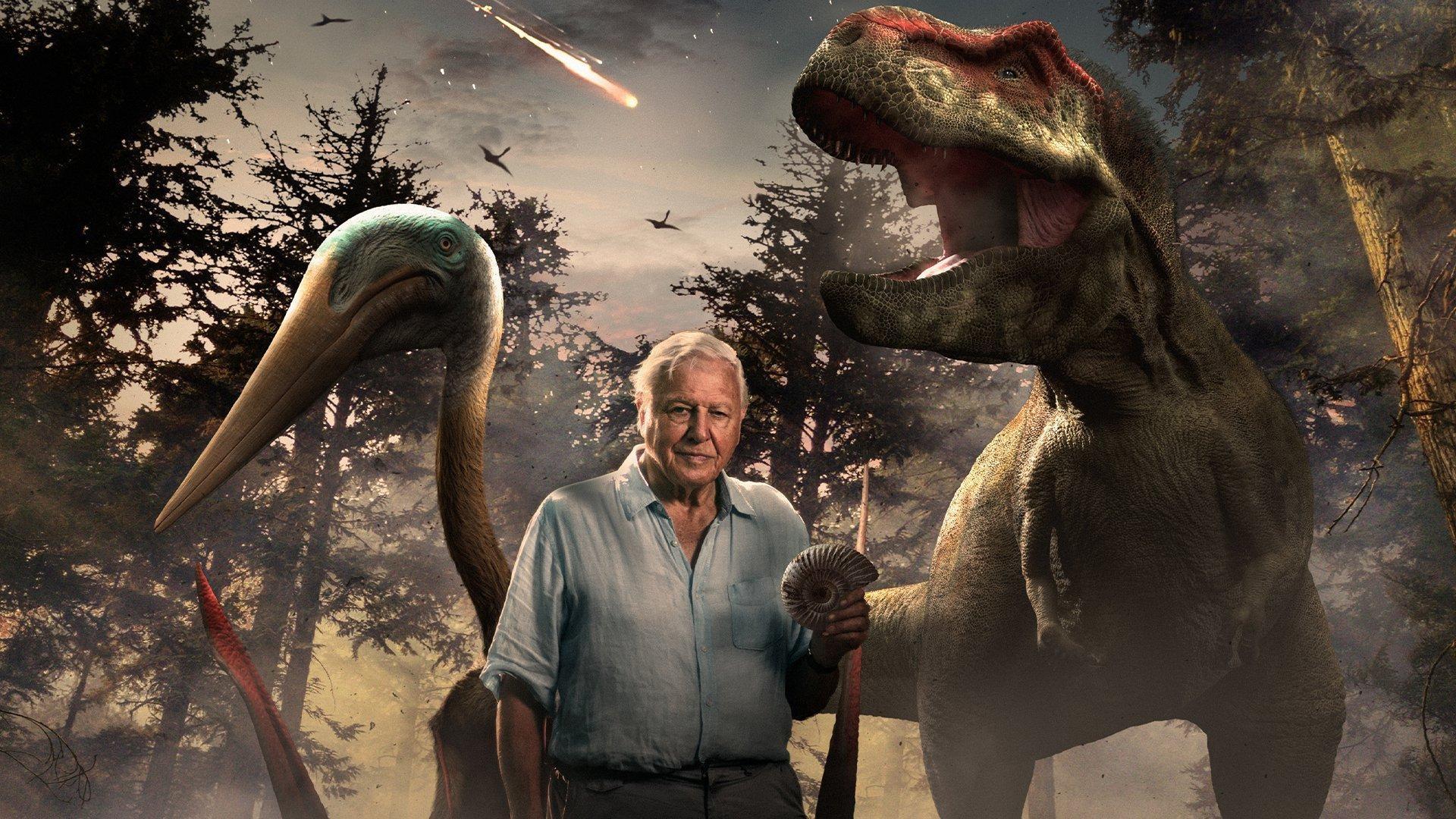BOSTON, MA; MAY 3, 2022—The award-winning PBS science series NOVA will premiere a new two-part special, DINOSAUR APOCALYPSE, Wednesday, May 11, at 8pm CT on Prairie Public, North Dakota’s PBS member station. The special explores how a wealth of newly uncovered fossils in the badlands of North Dakota may provide a never-before-seen glimpse of events on the day an asteroid struck Earth, ending the age of the dinosaurs. Viewers follow host Sir David Attenborough and a team of scientists as they try to reconstruct a detailed picture of one of the unluckiest days for life on Earth in two back-to-back, one-hour episodes, DINOSAUR APOCALYPSE: THE NEW EVIDENCE and DINOSAUR APOCALYPSE: THE LAST DAY.
Sixty-six million years ago, a gigantic asteroid larger than Mount Everest slammed into Earth, killing the giant reptiles that had dominated the planet for over 150 million years. There is strong evidence of the impact, but no fossils of a dinosaur killed in the event itself have ever been found. Now, at a dig site hidden in the Badlands of North Dakota, scientists have uncovered a wealth of fossilized creatures that might be connected to the fateful day that ended the Cretaceous Period. In DINOSAUR APOCALYPSE, Sir David Attenborough follows clues from this prehistoric graveyard, where a team of paleontologists uncover evidence they believe could help shed light on some dinosaurs’ final moments on Earth.
“We’re excited to bring viewers along on this journey as scientists excavate this extraordinary dig site,” said NOVA Co-Executive Producer Julia Cort. “We’re able to look over the shoulders of paleontologists uncovering some of the rarest fossils ever found in North America–perhaps in the world–that if confirmed, could help illuminate the most dramatic single day in the history of the planet.”
“The finds at this site are so potentially transformative that they seem almost too good to be true. That’s why telling the story of the painstaking process of analyzing this new evidence is so important,” said NOVA Co-Executive Producer Chris Schmidt. “And in the end, it just might provide us with the most intimate look yet of what dinosaurs and other creatures experienced when the Cretaceous came to an abrupt end 66 million years ago.”
###



